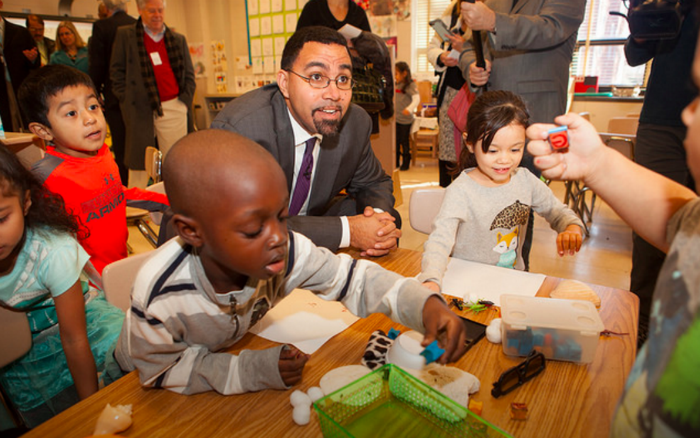Early mandatory schooling laws didn't influence intergenerational mobility

Expansion of mandatory schooling laws by U.S. states in the late 1800s and early 1900s did not increase levels of intergenerational mobility, according to a new study by a University of Kansas researcher.
While the number of people receiving an education increased, schools likely were not prepared or adequately funded and the quality of instruction they provided suffered, said Emily Rauscher, assistant professor of sociology, who conducted the study that appeared recently the American Journal of Sociology.
She said her findings help illustrate the importance of adequate planning and support of a quality education system if education is expected to help decrease economic inequality.
"The main implication is that education may not be able to increase equality of opportunity by itself," Rauscher said. "School funding and teacher-to-student ratio data indicate the school system in this historical period was initially unprepared for the policy change and, as a result, was slow to respond to the new educational policy landscape."
She found that when states began implementing mandatory or compulsory schooling laws beginning in the 1800s, intergenerational mobility initially declined and then it later returned to the same level observed before the laws took effect. These findings could potentially provide lessons for federal and state leaders seeking to use education—in particular higher education enrollment—as a tool to offer better economic opportunities to low-income Americans, said Rauscher, who is also the faculty director of the Wealth Transfer Project in the KU School of Social Welfare's Center on Assets, Education and Inclusion.
"Efforts to increase college enrollment and completion should include adequate preparation and funding to incorporate more students and new types of students—possibly those whose parents did not attend college or who come from a different social background than many of the faculty and students at higher education institutions," she said.
Rauscher recommends hiring enough well-trained faculty before enrollment levels increase, in addition to paying faculty enough to ensure the quality of instruction does not decline as more students enroll.
Other potential policy solutions extend beyond the classroom, such as providing students with adequate support to attend school without acquiring high levels of student loans or needing to work and forego benefits of attending school full time. It also would likely require administrators to anticipate the needs of students who will be encouraged to attend and providing support necessary to help them succeed.
"If equality is to increase, supports may also need to continue as students leave college, including improved matching of college graduates to employment opportunities," Rauscher said.
The findings in her study also provide lessons for developing countries that are seeking to expand educational access.
"This could include providing nutritional supplements so that students are healthy enough to pay attention in school, in addition to other needs like clean water and immunizations to prevent illness, transportation and money for families to replace the child labor earnings parents may lose by sending children to school," she said.
Rauscher said the key takeaway from her study is that education alone may not be able to improve intergenerational mobility without addressing economic inequality in more direct ways.
More information: Emily Rauscher. Does Educational Equality Increase Mobility? Exploiting Nineteenth-Century U.S. Compulsory Schooling Laws, American Journal of Sociology (2016). DOI: 10.1086/685443
Journal information: American Journal of Sociology
Provided by University of Kansas















